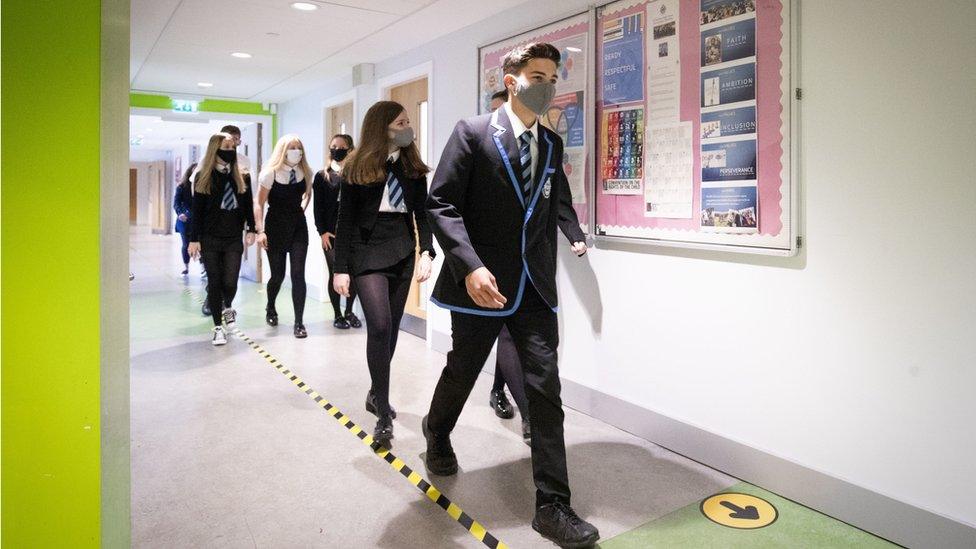Covid in Scotland: Back to school - back to normality?
- Published
- comments
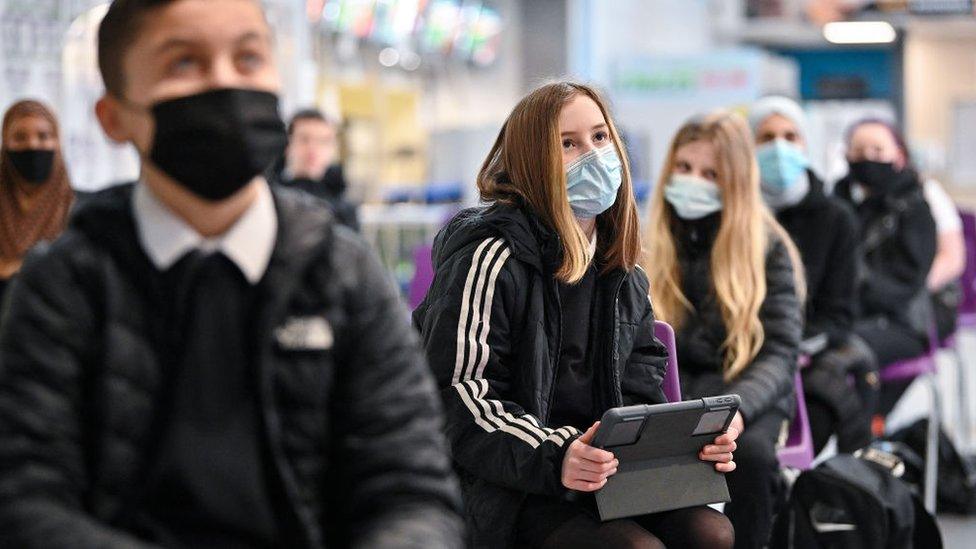
Some restrictions are still in place in schools including face coverings
Most Scottish pupils are back in the classroom this week. School has already begun in three council areas but the vast majority start within the next few days.
It's the third academic year to be affected by Covid. The previous two involved long periods of online learning, disruptive isolations and no standard exams. What can we expect this year?

Restrictions Remain
Some restrictions are still in place in schools. One of the biggest is face-coverings, which still need to be worn at all times in classrooms and corridors by teachers and secondary school pupils.
This isn't the case in all other settings, when you sit down to eat in a restaurant for instance or when you are seated at a desk in an office, as long as you are a metre apart.
There is also one-metre distancing in place between staff and between staff and pupils, restrictions on parents going into school buildings and there is advice that schools should avoid large gatherings such as assemblies.
Six Weeks To Vaccinate
The Scottish government has said these restrictions will be in place for "up to six weeks".
That's not just a random amount of time, it looks to be mapped to when it's believed almost all teaching staff will have had the opportunity to have had both vaccines, plus two weeks to build up increased protection.
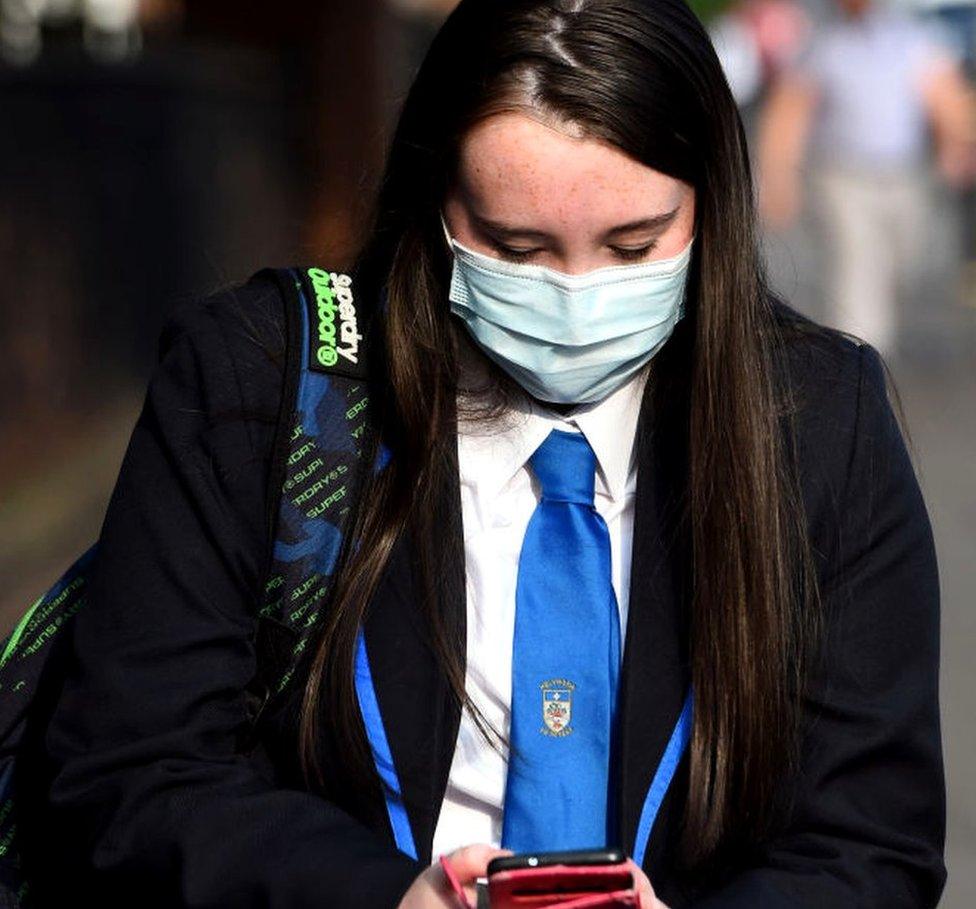
Vaccination has been extended to 16 and 17-years-olds
It would also allow more older pupils who are eligible to have had one jag.
Scientific advisers to the government on education, external say that milestone is expected to be reached by about 26 September.
Less Disruption
One of the most disrupting factors of the past year was the need for whole classes to isolate after one positive Covid case.
More than 290,000 children and young people were affected by this at some point and it impacted on those living in deprived area the most. That's not the way it's going to work this year.
Instead of schools having the responsibility to identify contacts, the bulk of this work will be passed over to Track and Trace, as is the case within the rest of society.
School pupils, the majority of whom will have not been offered a vaccine, will also be able to follow the same rules as the fully-vaccinated.
If they are contact-traced, they are encouraged to isolate until they have a negative PCR test result.
It's hoped this will lead to a smoother year for most young people, enabling them to have uninterrupted time with teachers.
Exams Return?
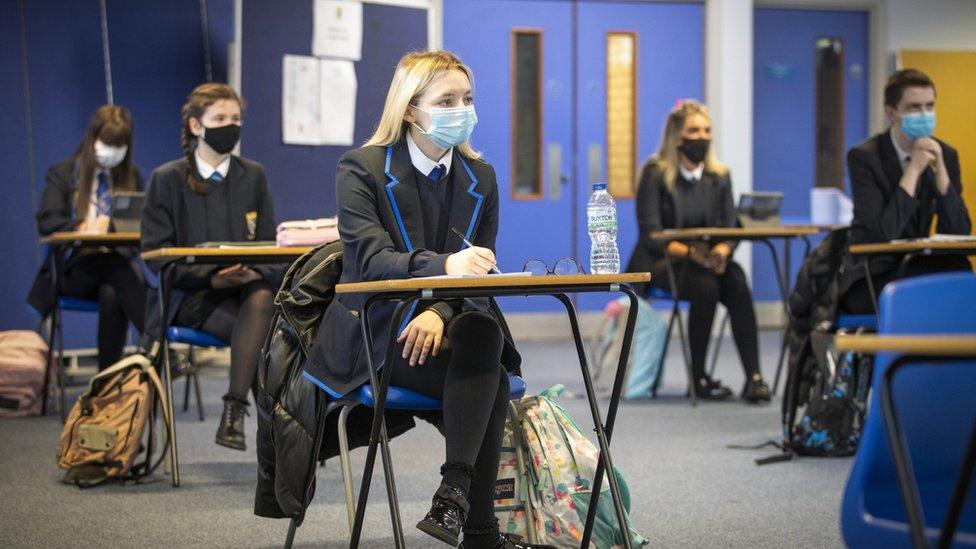
Pupils have not sat traditional exams in two years
One of the main reasons cited for the cancellation of formal exams earlier this year was the patchy nature of the disruption caused by isolation.
It wasn't thought fair to have those who had been in class facing the same standard exam as those who had been forced to be at home multiple times.
It didn't stop claims about the way grades were decided this year being criticised.
Since then, the government has announced it is replacing the body that runs Scotland's exams, the SQA, and has announced a commission to look into the way pupils are assessed in future.
While this debate is happening on a system-wide level, what most pupils, parents and teachers want to know is, what's happening next year?
Now we have had two years without formal exams, are we about to have a third?
We are told an announcement is due on this shortly. I would expect that the plan will be to aim for a return to the exam diet of pre-2020 but with a strong contingency plan if things need to be changed.

TRAVEL: What are the rules for travelling to green, amber and red list countries?
SOCIAL DISTANCING: What are the rules now?
TESTING: How can I get free tests?

Related topics
- Published22 June 2021
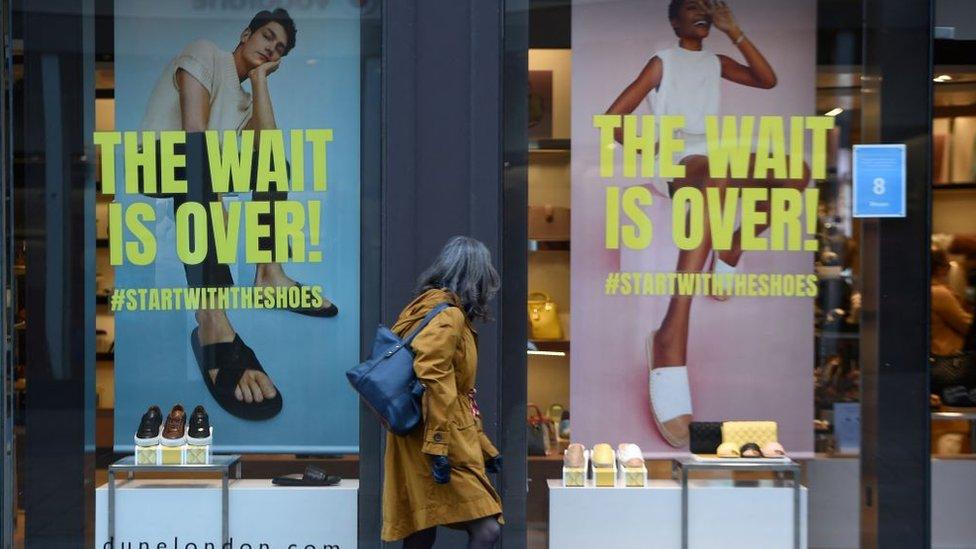
- Published24 June 2021
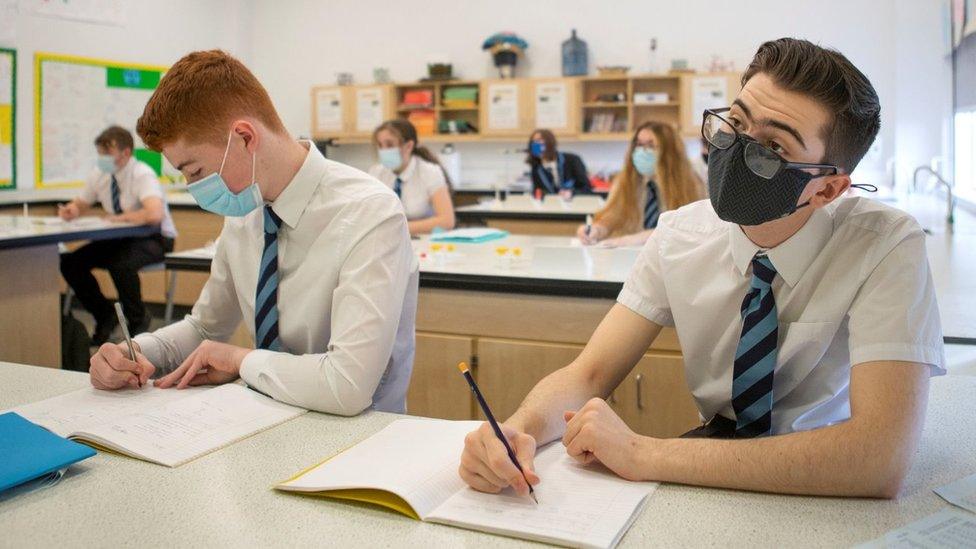
- Published10 November 2020
